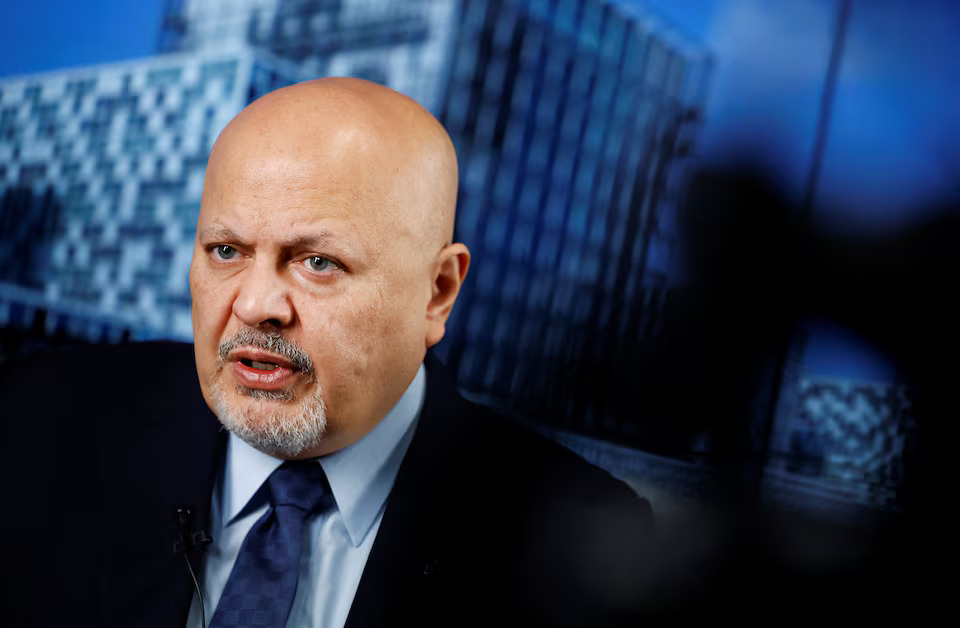International Criminal Court Prosecutor Karim Khan has defended his decision to bring war crimes allegations against Israel’s prime minister, saying Israel had made “no real effort” to investigate the allegations itself.
In an interview with Reuters, he stood by his decision over the arrest warrant despite a vote last week by the U.S. House of Representatives to sanction the ICC in protest, a move he described as “unwanted and unwelcome”.
ICC judges issued arrest warrants for Israeli Prime Minister Benjamin Netanyahu, former Israeli defence chief Yoav Gallant and Hamas leader Ibrahim Al-Masri last November for alleged war crimes and crimes against humanity during the Gaza conflict.
The Israeli prime minister’s office did not immediately respond to a request for comment on Khan’s remarks to Reuters.
Israel has rejected the jurisdiction of the Hague-based court and denies war crimes. The United States, Israel’s main ally, is also not a member of the ICC and Washington has criticised the arrest warrants against Netanyahu and Gallant.
“We’re here as a court of last resort and …as we speak right now, we haven’t seen any real effort by the State of Israel to take action that would meet the established jurisprudence, which is investigations regarding the same suspects for the same conduct,” Khan told Reuters.
“That can change and I hope it does,” he said in Thursday’s interview, a day after Israel and the Palestinian militant group Hamas reached a deal for a ceasefire in Gaza.
An Israeli investigation could have led to the case being handed back to Israeli courts under so-called complementary principles. Israel can still demonstrate its willingness to investigate, even after warrants were issued, he said.
The ICC, with 125 member states, is the world’s permanent court to prosecute individuals for alleged war crimes, crimes against humanity, genocide and aggression.
Khan said that Israel had very good legal expertise.
But he said “the question is have those judges, have those prosecutors, have those legal instruments been used to properly scrutinise the allegations that we’ve seen in the occupied Palestinian territories, in the State of Palestine? And I think the answer to that was ‘no’.”
TRUMP’S IMMINENT RETURN
Passage of the “Illegitimate Court Counteraction Act” by the U.S. House of Representatives on Jan. 9 underscored strong support for Israel’s government among President-elect Donald Trump’s fellow Republicans.
The ICC said it noted the bill with concern and warned it could rob victims of atrocities of justice and hope.
Trump’s first administration imposed sanctions on the ICC in 2020 over investigations into war crimes in Afghanistan, including allegations of torture by U.S. citizens. Those sanctions were lifted during Joe Biden’s presidency.
Five years ago, then-ICC prosecutor Fatou Bensouda and other staff had credit cards and bank accounts frozen and U.S. travel impeded. Any further U.S. sanctions under Trump would be widely expected to be more severe and widespread.
The ICC, created in 1998, was intended to assume the work of temporary tribunals that have conducted war crimes trials based on legal principles established during the Nuremberg trials against the Nazis after World War Two.
“It is of course unwanted and unwelcome that an institution that is a child of Nuremberg …is threatened with sanctions. It should make people take note because this court is not owned by the prosecutor or by judges. We have 125 states,” Khan said.
It “is a matter that should make all people of conscience be concerned,” he said, declining to discuss further what sanctions could mean for the court. (Reuters)

